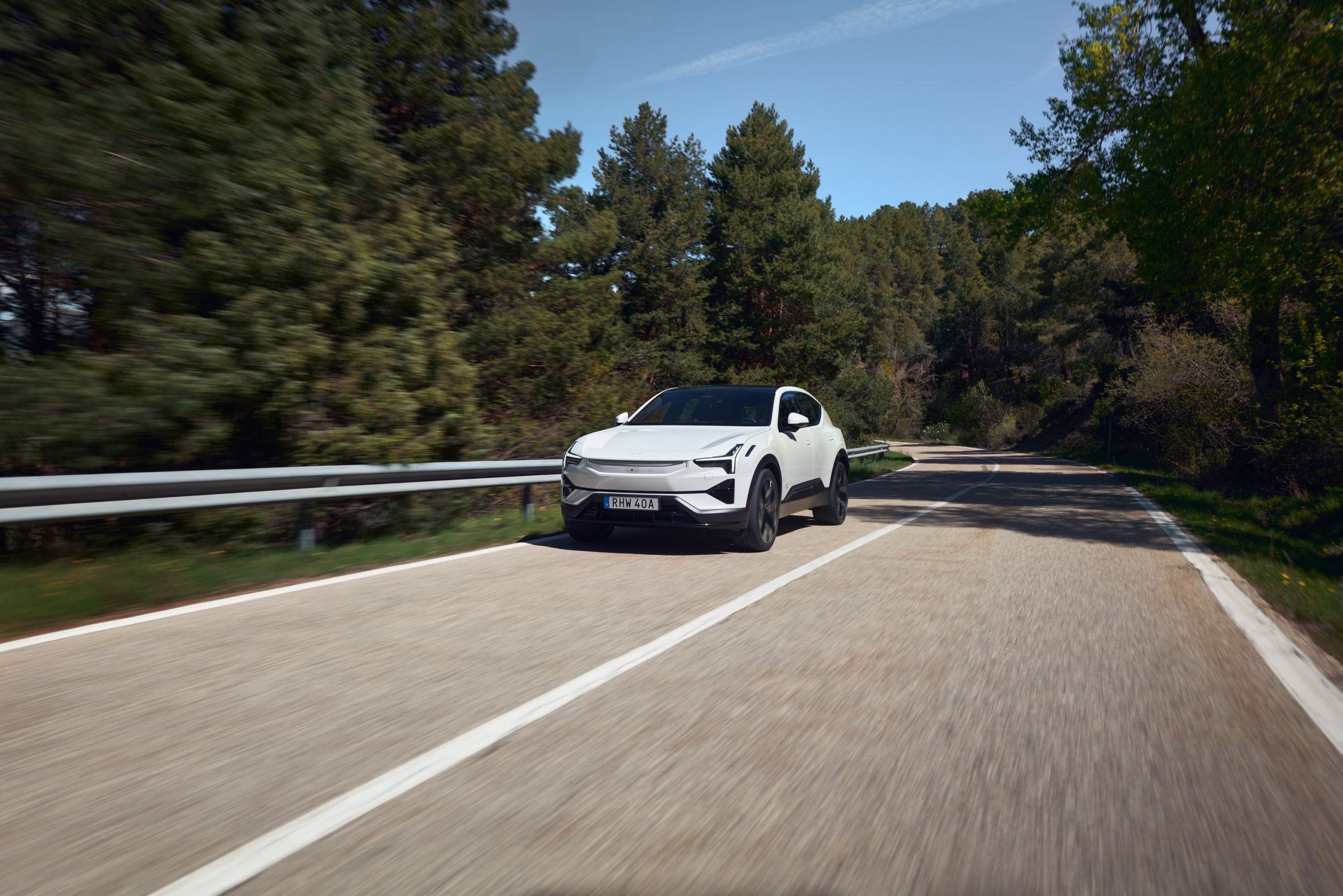What is it?
Polestar is looking to ramp things up in 2024. While it may have seen a lot of popularity with its classy 2, that car has been on the roads for a little while now with its Swedish maker left to talk about not an awful lot else. That all changes soon, with a flurry of new models hitting the tarmac, including this – the 3. It’s a car which enters into the popular electric SUV segment and does so with all manner of battery-powered bells and whistles.
With a new platform underneath and loads of clever tech inside, the Polestar 3 certainly has the ingredients to succeed, but can it? We’ve been behind the wheel to find out.
What’s new?
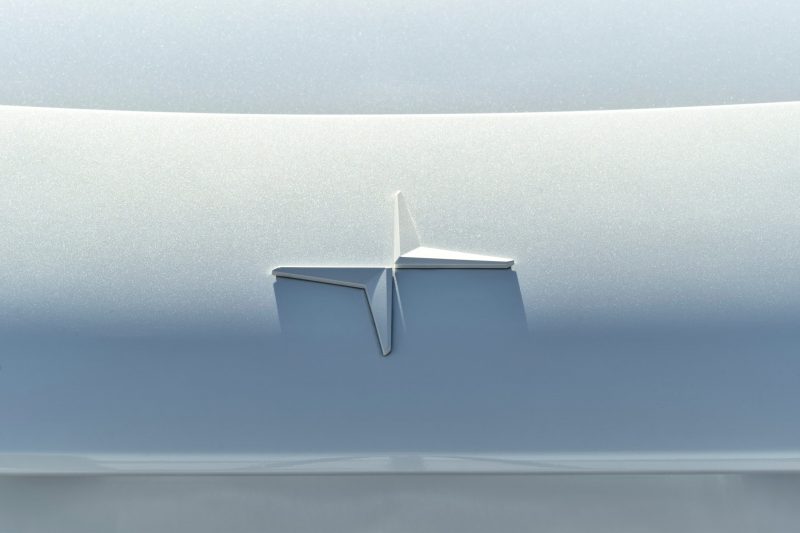
As mentioned, there are a lot of very new aspects to the Polestar 3. Underneath, it’s got a brand-new platform – created by Polestar’s owners Geely and shared with other brands within its stable, including Volvo – which allows for loads of interior space and some super-fast charging speeds too. While the Polestar 3’s Volvo cousin – the EX90 – might be available with seven seats, this car is a strict five-seater, however.
Elsewhere, we’ve got the same stripped-back Scandi design approach that we’ve seen put to good use in the smaller 2, though plenty of high-end materials aim to boost the premium feel inside while ensuring a solid, enduring feel to the whole car.
What’s under the bonnet?
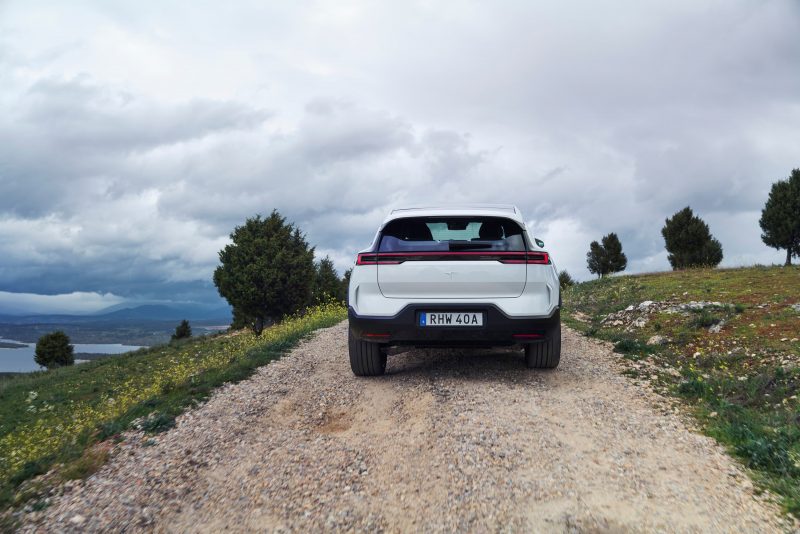
As with the Polestar 2, the 3 will be available with a number of powertrain options. It launches, however, with two – Long range Dual motor or Long range Dual motor with Performance Pack, with the latter, as you might expect, shaving the 3’s 0-60mph time down through more torque and power though reducing overall range as a result.
However, the ‘regular’ dual motor version isn’t a slouch. In fact. It’ll manage 0-60mph in 4.8 seconds, yet can still return up to 390 miles of range. The performance model, in contrast, has a claimed range of up to 348 miles between trips to the plug. The good news, however, is that because the 3 can accept charging speeds of up to 250kW, it’ll take just 30 minutes to charge its massive 107kWh battery from 10 to 80 per cent.
What’s it like to drive?
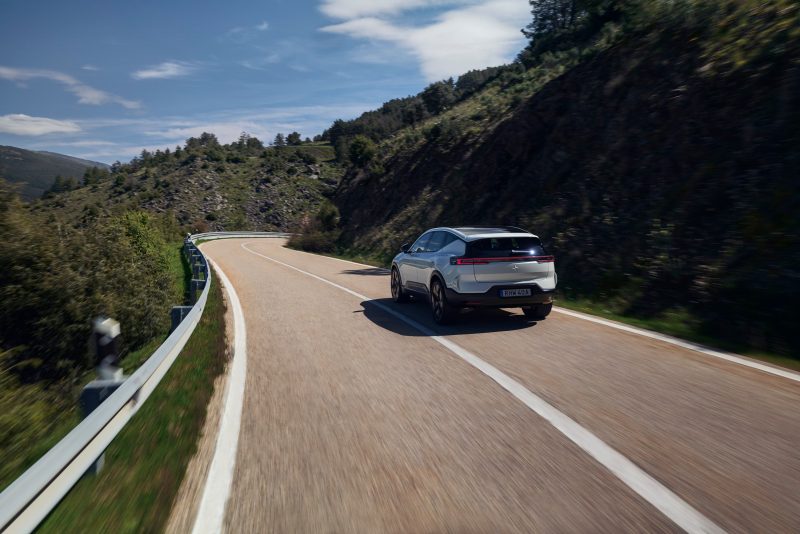
Polestar has aimed to put some ‘sportiness’ into its cars and though we’d argue that a 2.67-tonne SUV is unlikely to ever really be dynamic, it puts up a good fight in this area – mainly thanks to the fitment of a clever torque-vectoring system on the rear axle. It corners neatly and flatly, but what shines through most of all is the refinement – it’s quiet, comfortable and feels particularly at ease when travelling at higher speeds. The steering is relatively mute overall but it’s accurate enough to place the car where you want it easily. Rearward visibility isn’t the best, mind you, and the large rearward pillars mean over-the-shoulder visibility is impaired considerably.
Of course, this is quite a big bus, so threading it along narrower roads and streets does take a fair bit of concentration, but once you’re used to it things aren’t that bad. Is it sporty? Not particularly. But Polestar has done well to make the 3 easy-going in nature, which is what you’re after in a large SUV.
How does it look?
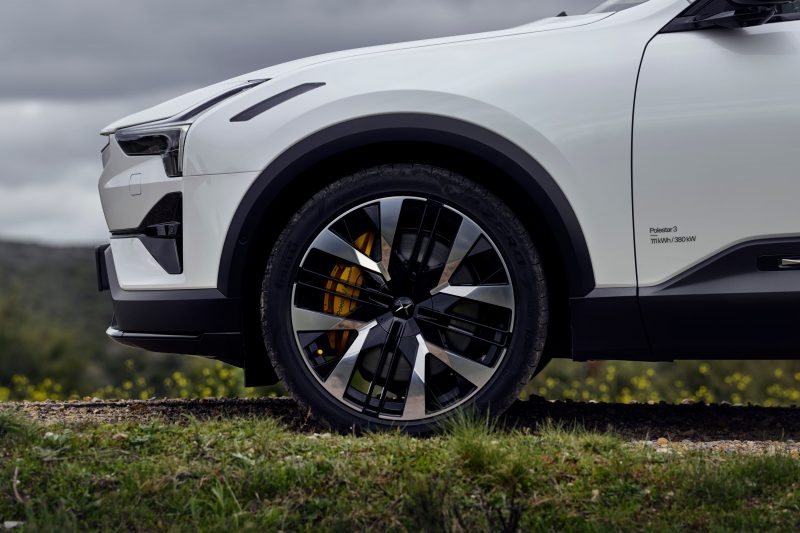
Polestar’s 2 set the tone for the brand’s future styling and though the 3 might have a load of its own design touches, there’s still a common thread connecting them both. It’s an impressive thing up close, mind you, with its upright stance and slim, razor-sharp headlights combined to make a car which has a lot of presence. While Polestar’s famous white colour will be the go-to for many, we’d argue that the 3 does look impressive in some of the other shades available, though there aren’t all that many to choose from.
Around the rear, there’s the full-width lightbar which is so common in the market – and loved by makers of EVs – but it does play into the futuristic look that the 3 is going for overall.
What’s it like inside?
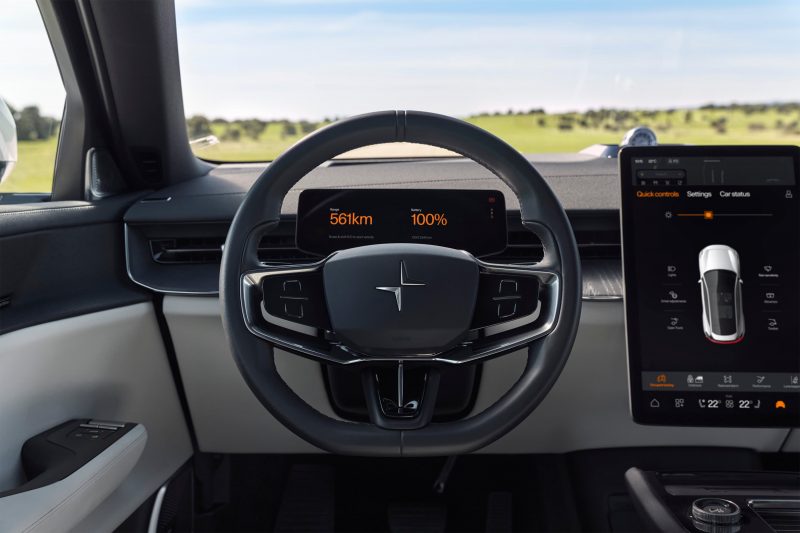
As mentioned, Polestar’s vehicles have always had a certain Scandinavian, uncomplicated way about them and the 3 is no different. You’ll not find the interior adorned with numerous buttons or toggles, as much of the forward cabin is focused around the large portrait-orientated screen. Fortunately, there’s a display ahead of the driver, which means you’ve got those much-needed readouts right in front when you need them.
But space is good. The rear seats offer loads of legroom and headroom and everything has a solid feel to it. While Vegan materials are used as standard, the 3 is also available with a full leather interior which does seem to represent a concerted push towards more premium brands. A 597-litre boot – when loaded to the roof – seems a touch small given how large the car is overall, though the 55-litre ‘frunk’ under the bonnet is ideal for storing the charging cables in.
What’s the spec like?
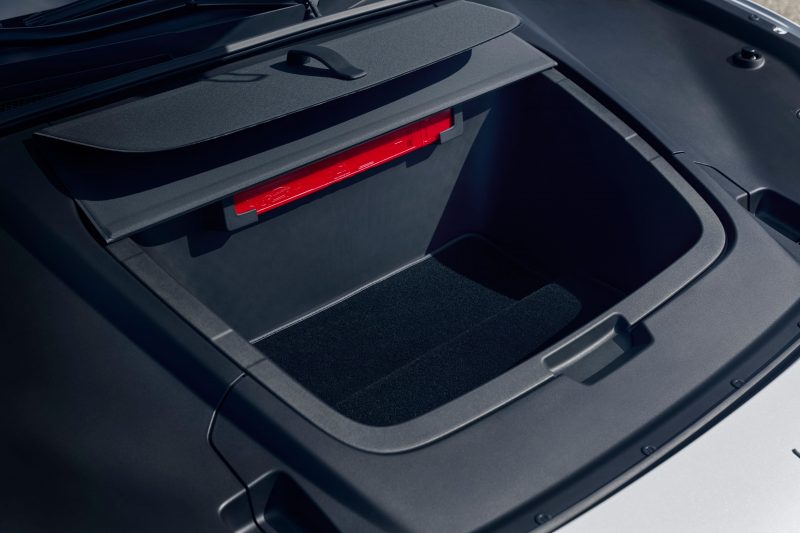
Polestar is definitely giving the 3 a premium price tag. It’s priced from £79,900, which is a decent wedge of cash and nearly £10,000 more than you’d pay for an entry-level Audi Q8 e-tron. That said, the 3 counters with some very nifty technology which outshines the German-made cars in many areas. The main screen, which runs Android Automotive software is sharp and responsive, with plenty of those must-have features – such as Google Maps – coming pre-installed and running flawlessly, particularly when compared to other in-house navigation systems.
There’s a wireless charging pad as standard too – though since it has been made flush with the fascia your smartphone can easily slide off when accelerating – while features such as a massive panoramic roof, electric tailgate and a 360-degree parking camera all come as standard too. Add in many of the Polestar 3’s standard features to the Audi and the price would ramp up considerably.
Verdict
The electric SUV segment is a busy one. A lot of carmakers started off their electric journeys with high-riding models and that means the Polestar 3 is entering into difficult territory. However, while the wait for another Polestar model may have been long, the arrival of the 3 marks a positive forward step for the Swedish brand. It’s a comfortable and well-made car, this one, and has all of the technology on-board that you’d expect.
While we’d argue that it’d be worth hanging on until later this year for the arrival of the single-motor version – which was the strongest setup in the older 2 – the launch dual-motor 3 represents a good effort and one which should stand out in this very busy crowd.

